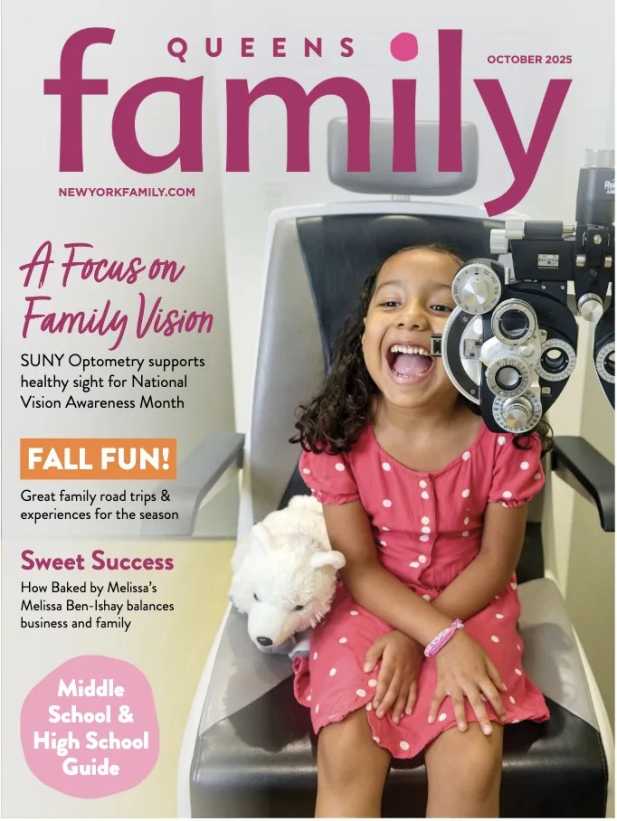
Teaching Children About Financial Literacy: An Expert Weighs In
Like it or not, money is a huge part of our world and how we move about it. Teaching kids, especially young girls, about financial literacy is a huge step towards setting them up for success in the future.
And that’s what financial expert and founder of Inspired Capital Alexa von Tobel is striving them to do. In her new children’s book Growing Up Powerful: Money Matters, von Tobel aims to empower the next generation of financially savvy girls early on in their lives.
After spending 20 years of her career helping young adults fix their finances, von Tobel found that the financial world can be pretty unforgiving. So, she’s switching from helping young adults play defense with their finances to helping parents teach their children how to play offense.
We sat down with von Tobel to talk about how she talks about money in her own family, what pitfalls parents fall into when talking to kids about money and how we can empower the next generation of financially savvy kids.
Psst… The Guggenheim’s Learning Through Art Program Presents A Year with Children 2024.
How do you talk about money in your own home?
A study from the University of Michigan says that kids can pick up on the tone of how money is discussed as early as age five. With that in mind, von Tobel says she’s very thoughtful about how money is discussed with her family, which includes her three kids.
In von Tobel’s family, money is “a factual element of our lives,” she says, so it is discussed in a matter of fact, straightforward way.
“We talk about it with no anxiety and no stress on purpose,” von Tobel says. “And we clue our children into money decisions, but with a matter of fact, can-do attitude, upbeat tone.”
Von Tobel also says she talks about work and making money in a positive light.
Some parents talk about work in a negative light, and von Tobel says “that just creates this big, negative doom and gloom for the concept of work.”
When you talk about work in a positive way, “you’re orienting earning money as being something that’s positive, that can be fun and exciting, that your job can be an alignment of your passions and your skill sets,” von Tobel says. “And so all of those are fun.”
By reorienting how she talks about money and work, von Tobel says money is looked at as a tool and nothing else.
“It is not meant to be ignored, it is not meant to be worshiped,” von Tobel says. “It is simply a tool that allows us to live our life.”
What are some pitfalls parents and families fall into when talking to their kids about money?
One common pitfall parents fall into is having conversations about money with young kids in ways they may have a hard time conceptualizing.
For example, von Trobel shared a story of her young daughter wanting a toy that costs $50.
“She doesn’t really have a concept of what $50 is,” von Trobel says.
But that doesn’t mean you have to avoid conversations about money entirely with young children.
“You can start having money conversations, you just have to use very primitive ways of explaining things,” von Tobel says.
In the above example, von Tobel says she explained to her daughter that the toy she wanted cost, a “big pile of quarters,” and even though she didn’t have that many quarters today, she could get the toy for her birthday.
Parents also make the mistake of giving in to their children too often, von Trobel says, when it comes to buying things that they ask for.
“All you’re doing is making it hard for your child to learn willpower and boundary setting,” von Tobel says. “And so money is a big element of boundary setting.”
Teaching children about willpower and boundary setting when it comes to money also teaches them about supply and demand principles and the importance of delayed gratification, which comes into play with bigger financial decisions later on.
“Do you want to buy the smaller home today, or can you wait and save up and buy the much bigger home later?” von Tobel says. “It’s a muscle that you will practice and use your entire life.”
When should parents start teaching their children about financial literacy?
Teaching kids about financial literacy can start early.
“When you’re learning basic math, you’re capable of learning these principles,” von Tobel says.
One way to do this is by setting your child up with multiple piggy banks at home: a small one for quick purchases, a medium one for larger purchases and a big one for long-term savings (like a college fund, for example).
This teaches kids about how to save money and how to split up the money they earn and put it towards different things. Simple lessons early on can help children build good habits later on.
“Those principles are really important to lay the foundation,” von Tobel says. “And to talk about money in a completely unemotional, matter of fact way can transform a child’s life.”
While there may be a misconception that kids can’t think about money because it’s too complicated, von Tobel says “the math is not the complicated piece.”
“It’s the habit forming, it’s the checking in to make sure you ask good questions, it’s understanding delayed gratification, that is what’s important with money,” von Tobel says. “It’s a muscle that you need to practice and you need to build and you need to build it as early as you possibly can.”
As people get older, conversations about money start to include things like salary negotiations. How can parents prepare their kids for these conversations at a young age?
The key to setting kids up for conversations surrounding being paid what they’re worth in the workplace, according to von Tobel, is to teach them to work hard for the things they want and that their hard work will be rewarded.
“Your hard work is valued and it is equally valuable to somebody else working hard,” von Tobel says. “It’s about making it an unequivocal fact that they believe in and recognize and know as a truth they can hold constant.”
When parents teach their kids to know for a fact that their work is just as valuable as anyone else’s, it sets them up to be able to advocate for themselves, in the workforce and in life.



























